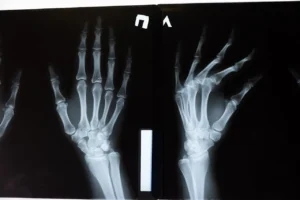
Vertex Pharmaceuticals Incorporated (Nasdaq: VRTX) announced today that the European Medicines Agency’s (EMA’s) Committee for Medicinal Products for Human Use (CHMP) has adopted a positive opinion for the conditional approval of CASGEVY™ (exagamglogene autotemcel [exa-cel]), a CRISPR/Cas9 gene-edited therapy, for the treatment of severe sickle cell disease (SCD) and transfusion-dependent beta thalassemia (TDT).
If approved, exa-cel would be the only genetic therapy for patients in the European Union who are 12 years of age and older with either severe SCD with recurrent vaso-occlusive crises (VOCs) or TDT, for whom hematopoietic stem cell (HSC) transplantation is appropriate and a human leukocyte antigen matched related HSC donor is not available. An approval decision by the European Commission is expected in February 2024.
“This positive opinion is yet another important regulatory milestone underscoring the potentially transformative benefit of CASGEVY for eligible patients with sickle cell and transfusion-dependent beta thalassemia,” said Nia Tatsis, Ph.D., Executive Vice President and Chief Regulatory and Quality Officer at Vertex.
“There is an urgent need for new potentially curative treatments in beta thalassemia and sickle cell disease, as people with these diseases still have a shorter life expectancy than the general population and an impaired quality of life,” said Franco Locatelli, M.D., Ph.D., Principal investigator in the CLIMB-111 and CLIMB-121 studies, Professor of Pediatrics at the Catholic University of the Sacred Heart, Rome, and Director of the Department of Pediatric Hematology and Oncology at the Bambino Gesù Children’s Hospital. “As an investigator, I have witnessed first-hand the transformative impact exa-cel can have on patients’ lives and I eagerly await the approval in the European Union.”
About Sickle Cell Disease (SCD)
SCD is a debilitating, progressive, life shortening genetic disease. SCD patients report health-related quality of life scores well below the general population and significant health care resource utilization. SCD affects the red blood cells, which are essential for carrying oxygen to all organs and tissues of the body. SCD causes severe pain, organ damage and shortened life span due to misshapen or “sickled” red blood cells. The clinical hallmark of SCD is vaso-occlusive crises (VOCs), which are caused by blockages of blood vessels by sickled red blood cells and result in severe and debilitating pain that can happen anywhere in the body at any time. SCD requires lifelong treatment and significant use of health care resources, and ultimately results in reduced life expectancy, decreased quality of life and reduced lifetime earnings and productivity. In Europe, the mean age of death for patients living with SCD is around 40 years. Stem cell transplant from a matched donor is a curative option but is only available to a small fraction of people living with SCD because of the lack of available donors.
About Transfusion-Dependent Beta Thalassemia (TDT)
TDT is a serious, life-threatening genetic disease. TDT patients report health-related quality of life scores below the general population and significant health care resource utilization. TDT requires frequent blood transfusions and iron chelation therapy throughout a person’s life. Due to anemia, patients living with TDT may experience fatigue and shortness of breath, and infants may develop failure to thrive, jaundice and feeding problems. Complications of TDT can also include an enlarged spleen, liver and/or heart, misshapen bones and delayed puberty. TDT requires lifelong treatment and significant use of health care resources, and ultimately results in reduced life expectancy, decreased quality of life and reduced lifetime earnings and productivity. In Europe, the mean age of death for patients living with TDT is 50-55 years. Stem cell transplant from a matched donor is a curative option but is only available to a small fraction of people living with TDT because of the lack of available donors.
About CASGEVY™ (exagamglogene autotemcel [exa-cel])
CASGEVY™ is a non-viral, ex vivo CRISPR/Cas9 gene-edited cell therapy for eligible patients with SCD or TDT, in which a patient’s own hematopoietic stem and progenitor cells are edited at the erythroid specific enhancer region of the BCL11A gene through a precise double-strand break. This edit results in the production of high levels of fetal hemoglobin (HbF; hemoglobin F) in red blood cells. HbF is the form of the oxygen-carrying hemoglobin that is naturally present during fetal development, which then switches to the adult form of hemoglobin after birth. CASGEVY has been shown to reduce or eliminate VOCs for patients with SCD and alleviate transfusion requirements for patients with TDT.
The use of CASGEVY in the European Union remains investigational.
CASGEVY is approved in the U.S. to treat people aged 12 years and older with SCD who have recurrent VOCs. CASGEVY was granted a conditional marketing authorization in Great Britain by the U.K. Medicines and Healthcare products Regulatory Agency for patients 12 years of age and older with SCD characterized by recurrent VOCs or TDT, for whom hematopoietic stem cell transplantation is appropriate and a human leukocyte antigen matched related hematopoietic stem cell donor is not available. CASGEVY is currently under review by the Saudi Food and Drug Authority for both SCD and TDT and the U.S. Food and Drug Administration for TDT.




